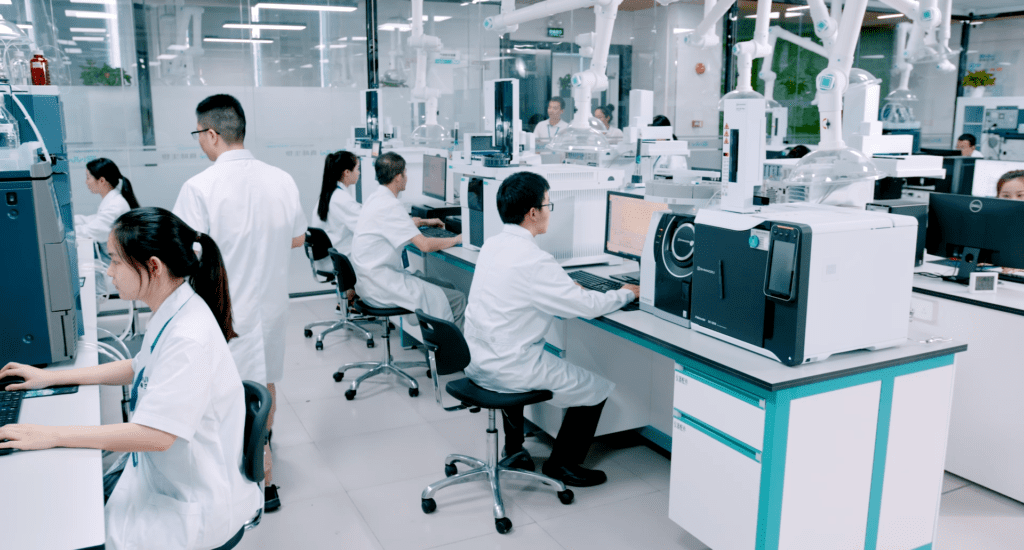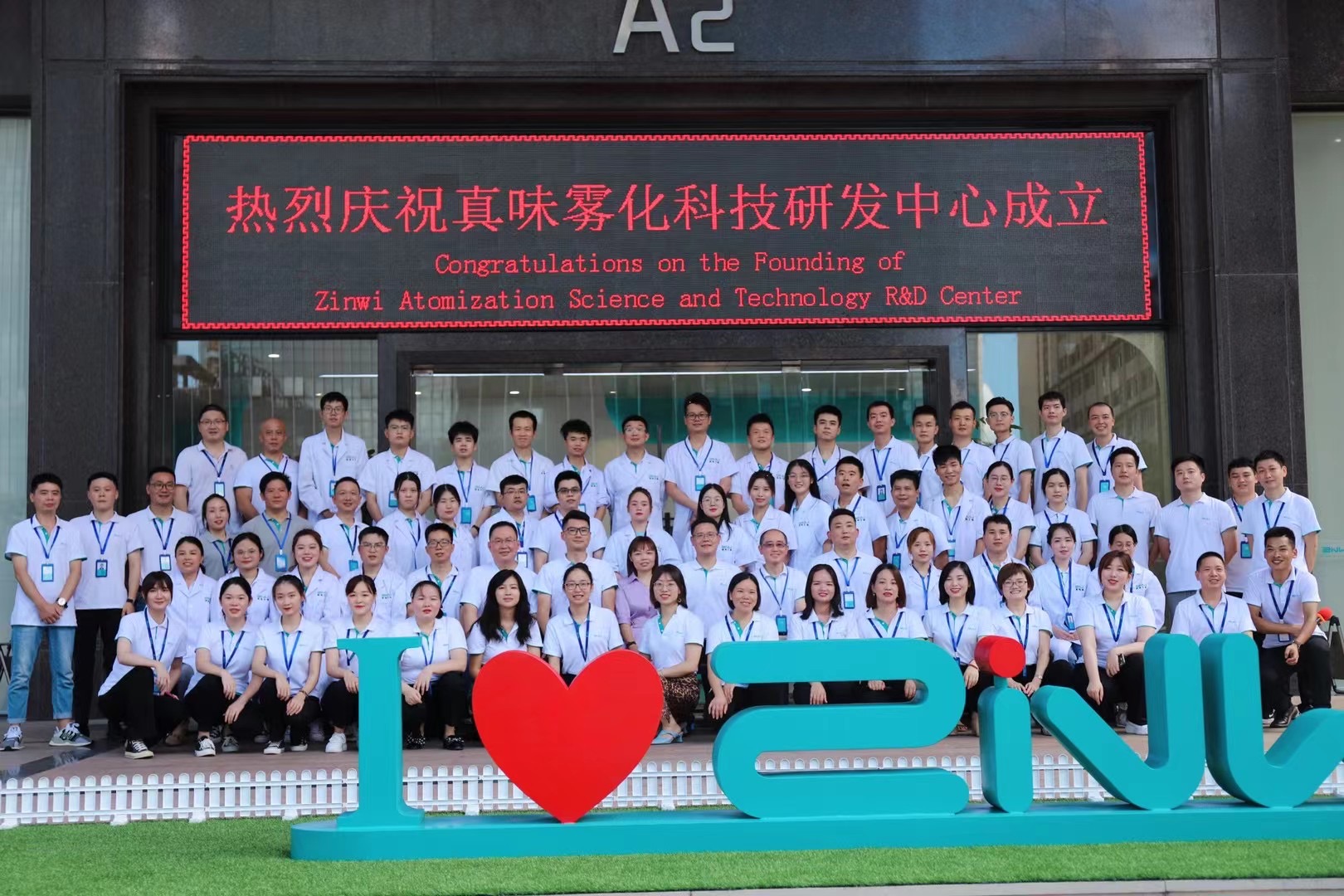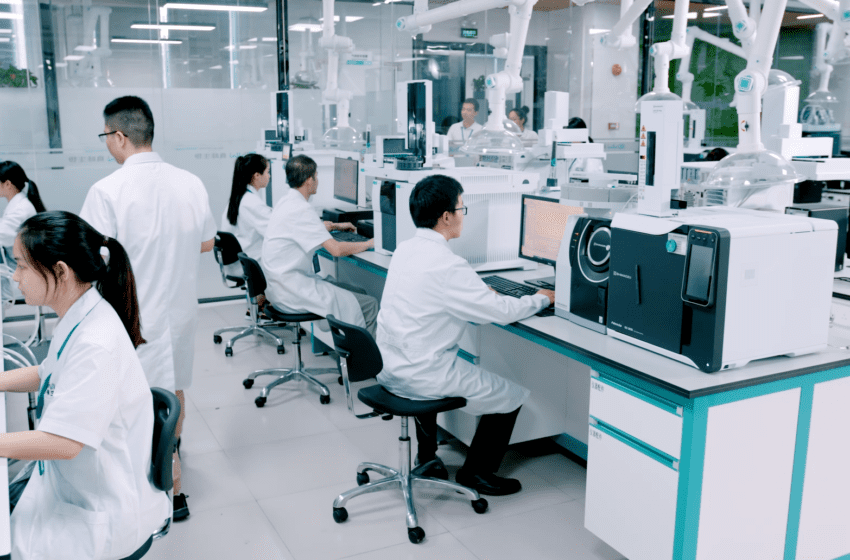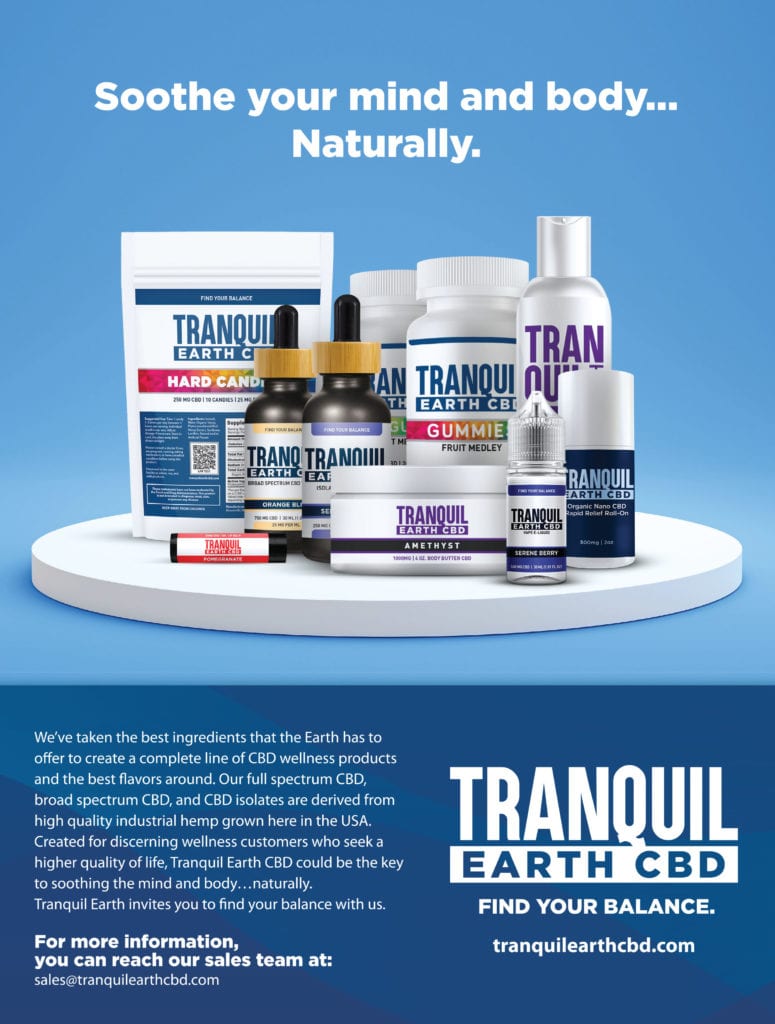
Zinwi Bio-Tech is the first company to be authorized by the Chinese government to produce e-liquids.
By Timothy S. Donahue
The e-cigarette industry is competitive. It is also growing rapidly. According to a recent report from Allied Market Research, the global e-cigarette market was valued at $17.3 billion in 2020 and is projected to reach $94.3 billion by 2031. As stringent regulations are implemented around the world, companies that produce the highest quality products in factories that meet the highest standards are finding themselves in high demand.
When the State Tobacco Monopoly Administration of China (STMA) passed the Electronic Cigarette Administration Measures in March of this year, it required companies to apply for a license and comply with certain technical standards, including permitted ingredients and additives. Companies applying for the license must submit evidence showing financial and manufacturing fitness, to exacting standards set by the STMA, in a limited time frame.
According to the SMTA website, fewer than 50 e-cigarette-related companies—including retailers and manufacturers—have received licenses. In June, Zinwi Bio-Tech became one of the first vape industry companies to secure a production license, specifically in the e-liquid category. Jenny Xu, Zinwi’s deputy director for international business, said garnering the license is challenging. Zinwi needed to meet strict quality control standards and go through a screening procedure that proved the company’s strong, reputable status in the industry.
“The license not only gives Zinwi permission to produce e-liquid in China, helping Zinwi as a leading player in the industry to further enhance its concentration in the e-liquid segment, but also indicates the official recognition on Zinwi’s products, facilities and overall operation,” said Xu. “To secure the license, a company must prove that it is in possession of sufficient funds for production, with adequate facilities and equipment to meet the set standards. The materials and information required to apply are multiple in terms of financial status, production process and quality management.”
In addition, the time window for submitting applications is narrow—a company must have completed and submitted its application by Sept. 30, 2022. The bar is also high, according to Todd Jiang, Zinwi’s sales director for international business, adding that the STMA’s review of both the application materials and the on-site check are strict as well.
Jeff Zou entered the vaping industry and began Zinwi in 2016 with the goal of focusing on R&D, production and sales of e-liquid. Headquartered in Shenzhen, China, Zinwi is a high-tech enterprise integrating the R&D, production and sales of e-liquid, having developed into a global leader in the e-liquid solution service sector. Zou believes e-liquid “is at the core of the e-cigarette and has great potential” because it’s needed in every vaping device.
“All e-liquid is the raw material that consumers vape. Consumers care about taste first followed by brand awareness and product design,” explains Zou. “Especially as the hardware technology becomes more and more mature, and products tend to become standardized, it will not be the hardware that reflects the advantages of e-cigarette brands; instead, the taste of the e-liquid will become the most important factor for consumers to consider when choosing what to vape.”
In 2021, Zinwi Bio-Tech’s annual e-liquid shipment breached the 2,000-ton mark, equivalent to approximately 1.3 billion pods. Its production base covers an area of nearly 20,000 square meters, with complete production and testing equipment, a standard good manufacturing practices (GMP) workshop and automated production lines. The company’s GMP workshop was completed in 2019 and covers more than 1,800 square meters, according to Xu.
“Our production base is able to deliver large orders at low cost and handle customer needs in a timely manner. The average monthly production capacity of our e-liquids can reach 600 tons,” Xu said. “We also have plans to expand our manufacturing sites overseas, so the overall production capacity can be further improved.”

Zinwi’s clients include brand customers as well as original design manufacturer/original equipment manufacturer factories. Most of Zinwi’s e-liquids are used in pod products (including rechargeable closed systems and disposable closed systems). Xu said the majority of Zinwi’s products are initially sold to downstream manufacturers in large quantities and then sub-packaged into pods. The company’s team of professional flavor chemists has developed tens of thousands of e-liquid product formulas.
“Zinwi produces e-liquid for both export and the Chinese market. The export destinations cover around 20 countries and regions across Europe, America and Canada, the Middle East, Russia and more,” explains Xu. “The company’s team of professional flavor chemists has developed over 40,000 e-liquid product formulas. Popular flavors can vary from region to region, country to country and city to city. For example, European customers prefer high sweetness, moderate coolness and sufficient aroma while Russian customers prefer moderate sweetness, low coolness and sufficient aroma.”
As of July 2022, Zinwi has approximately 450 employees. The company’s success is based in its strong scientific research ability, secret e-liquid formulas, unique product taste, mastery of market preferences and strict quality control, according to Jiang.
Zinwi has built a professional quality control and testing team to strictly control the process from raw material procurement, manufacturing to finished product testing, warehousing and after-sales quality, according to Jiang. Through sample collections, retention and traceability systems, Zinwi ensures its product quality with a strict quality control regime, according to Jiang. He says that Zinwi produces an average of 400 quality control samples daily that get stored in its 300-square-meter sample storage facility. The company has an 11-step inspection process conducted by more than 60 quality control professionals.
The company invested approximately RMB 26 million ($7.4 million) in its R&D efforts in 2021. Jiang said that this year, the company expects to invest about RMB 50 million. Its commitment to quality is supported by numerous accreditations, including ISO9001 certifications, national CNAS laboratory and GMP certifications, and many others.
“Zinwi has a strong R&D team and first-class scientific research equipment. In 2020, we set up the Atomization Technology Research Institute led by a doctoral team to carry out exploration and research on the basic field of e-liquid,” said Jiang. “Our R&D team continually breaks through the industry’s technical barriers and has obtained and applied for over 200 patents. Our R&D team includes the R&D Center for product R&D and Technology Center for technological innovation.
“The R&D Center is for customer-oriented e-liquid product development. The Technology Center is for the cutting-edge or basic research on technologies, like essential oil extraction from plant, atomization science, sensory science, etc. The ultimate goal of our product and technology R&D is to realize harm reduction atomization.”
According to Jiang, recent R&D projects have focused on core raw materials, product safety, consumer experience and health. “We have developed a variety of core raw materials through plant extraction technology. The high-quality core raw materials further enhance the taste of the product, thereby improving the quality of the product,” he says.
In addition, the company has built a product safety database based on a number of studies of biochemical toxicology, animal toxicology, component analysis and structural identification, among other areas. The knowledge helps guide the company’s research and development of harm reduction products.
“While pursuing consumer experience of taste, satisfaction, etc., we also insist on guiding product development with experimental data and theoretical research and pursue the concept of safety, low temperature and high-efficiency atomization,” adds Jiang.

When nicotine salts started to explode into the e-liquids market, Zinwi was on the forefront of innovation. Zinwi’s R&D team developed its own nicotine salt technology in 2018, which Jiang said could help vapers achieve a higher level of satisfaction with a softer taste. The company also participates in external research with several universities. Jiang said that the investment allows Zinwi to take advantage of external scientific research institutions and the talent behind those institutions to help Zinwi master the latest technological trends and cutting-edge knowledge.
“Our cooperative universities and institutions include Guangdong Pharmaceutical University, Shenzhen Institute of Advanced Technology – Chinese Academy of Sciences, Beijing University of Chemical Technology, [Chinese] Society of Toxicology and Shanghai University of Applied Sciences,” said Jiang.
To remain as active as possible in the industry, Zinwi joined the U.K. Vaping Industry Association and cooperated with its U.S. customers to submit a premarket tobacco product application to the Food and Drug Administration. Xu said that Zinwi’s knowledge of global market preferences in e-liquids can help customers quickly expand their customer base and reduce trial and error costs.
“Zinwi’s compliance team can provide customers with global compliance solutions for e-liquids. We have rich practical experience and professional knowledge to help customers understand the latest laws and regulations and industry information, ensuring that their products meet the compliance requirements of global markets and thus effectively enhancing their product competitiveness,” said Xu.
More importantly, the company’s experience in flavor development can set a company apart from its competition. Jiang said that Zinwi’s standardized production, shipping capabilities and quality control processes help the company quickly adapt to changes in a customers’ needs.
“We may even know the market changes earlier than our customers to give them advice and help them develop unique products,” Jiang says enthusiastically. “Our customization service can efficiently meet clients’ needs and ensure customer satisfaction. We will compare our e-liquid quality and variety of flavors with anyone, but no other e-liquid can compare.”


